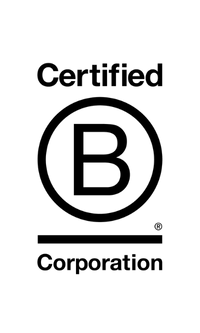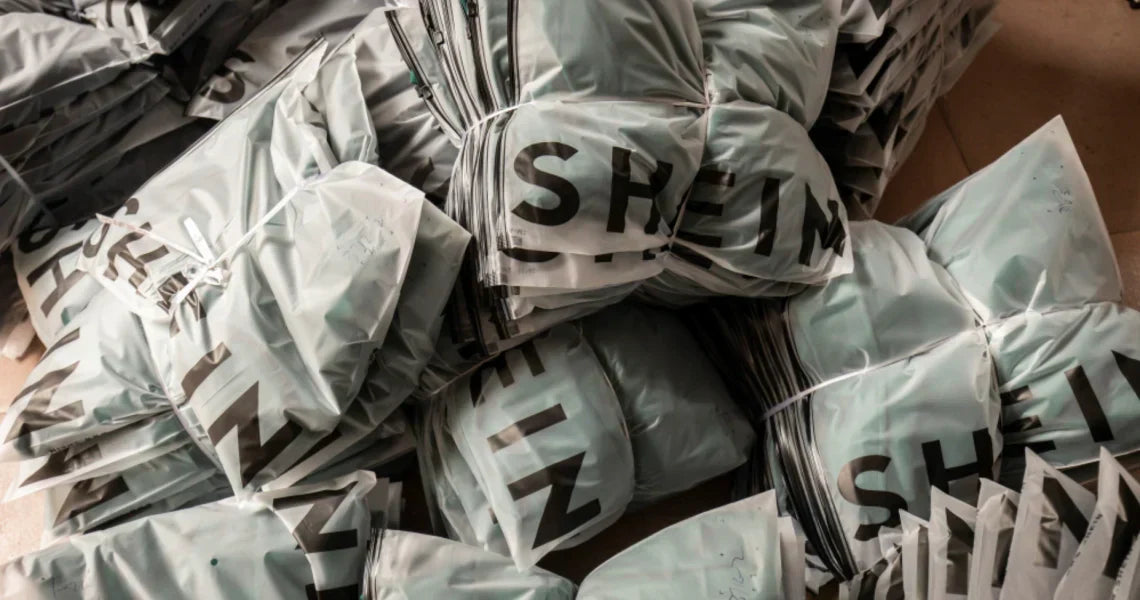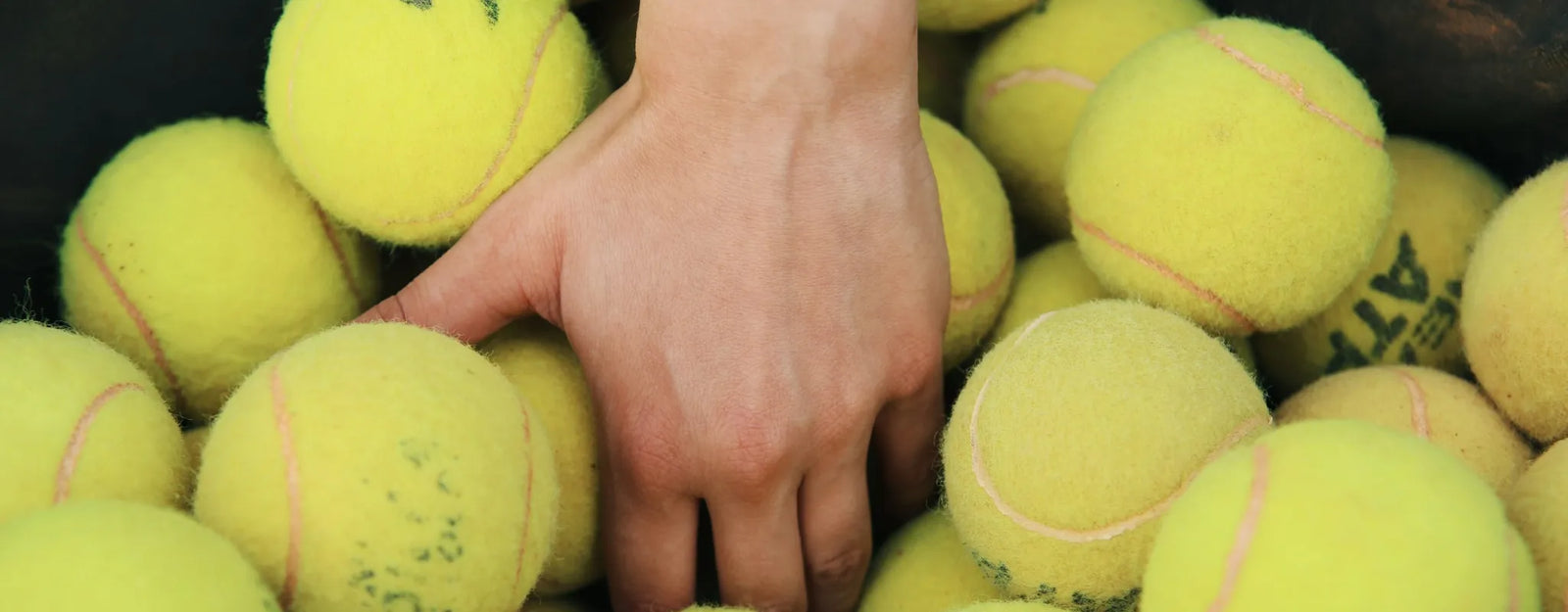Mathilde Blanc cofounded BLANC eco-friendly dry cleaning with her husband Ludovic in 2013 after realising that toxic chemicals used by dry cleaners are harmful to people's health, not to mention the plastic waste that is destroying our planet. Read on to hear more about Mathilde's journey and the ethos behind UK's first non-toxic, artisan aftercare company.
What was your inspiration behind BLANC dry cleaning in London?
There are two reasons why Ludovic and I started BLANC. The first was that he realised, after a lot of research into industries that needed environmental overhauls, that there was a huge problem with toxicity in the traditional dry cleaning industry. To clean clothes, traditional dry cleaners are soaking them in a solvent cleaner called PERC which is very toxic for human beings and for our planet. The second was that I felt there was a huge gap in customer experience compared to where other industries had got to. Dry cleaners are often dark, cramped, rather smelly places. Most are not very concerned about your feelings when things don’t go as planned or about how to work around your timetable - and because we’re all so busy, going to your dry cleaners becomes not the most pleasant of chores.
Together we’ve been building BLANC on the premise that we really needed to change both.
We want to become the first tech-enabled aftercare specialist: artisans empowered by technology, whose service is synonymous with quality, trust and consistency. We want to clean all clothes, naturally and always with love.
You have recently announced replacing traditional non-recyclable polythene plastic bags with compostable bags. Tell us more about the transition.
When it’s a known fact that the average plastic bag won't disappear for up to 1,000 years and that a vast amount of plastic waste doesn't get reused or recycled, it’s easy to be losing sleep about plastic pollution. BLANC was founded out of horror at realising how toxic and damaging to the environment and health conventional dry cleaning is. So it’s natural that we are driven to do everything we can to limit damage to our planet and its people.
The specific topic of plastic management has been a huge challenge for us, however. For a business of our size, plastic-free alternatives to standard industry packaging are often incredibly expensive, inaccessible, or even impossible to source. It’s easy to be disheartened - given the scale of the problem - that suppliers of recyclable, reusable materials are not flourishing.
After years of searching, we are so happy to have finally found a 100% compostable alternative to the plastic polyrolls used to protect clothes after cleaning. It is made from cellulose-based bio-film from renewable resources and will be compostable at home. This is still very much a work-in-progress since we will receive our first order soon and start testing it with our packing machines but we’re very excited to be pioneering yet another element of the industry’s sustainability journey.
It is more than just plastic pollution we need to worry about. How do traditional dry cleaning procedures contribute to environmental degradation?
'PERC' (perchloroethylene), which is derived from petroleum. It’s very bad for employees who breathe it in on a daily basis. It’s also bad for customers whose clothes have been soaked in it and it’s a major polluter for air, water and soil. Scientists have known for decades that PERC is dangerous and very toxic: it’s a well-known environmental and health hazard and is even listed as a probable human carcinogen by the EPA (US Environmental Protection Agency). Finally, it can also have a negative impact on clothes, due to the high temperatures and harsh chemicals. This can cause deterioration of the fabric fibres as well as melt buttons and sequins on the clothes - which diminishes their lifespan and causes people to buy more...
How are BLANC’s safer detergents better for people and the planet?
At BLANC, the main cleaning technology that we use is the Woolmark-approved ‘wet clean’ technology. Wet cleaning is an expert non-toxic alternative to conventional dry cleaning which delivers a better quality clean. With wet cleaning, we can clean anything with a dry clean only label and our process is kinder to the skin, to clothes and our planet.
Our specialists hand-treat fabrics with expert use of more natural pre-spotting products and then clean garments with water and biodegradable detergents in our specialist machines. We use the highest quality, professional non-bio detergent: no enzymes, no dyes, no phosphates... and of course not tested on animals!
Wet cleaning machines work at much lower temperatures than traditional dry cleaning, so that’s much more gentle on fibres. They calculate individual cycles for each type of fabric or garment type (be it wool, cashmere, silk, lace, etc). Wet cleaning does not generate hazardous waste, nor does the process create air pollution.
Essentially, wet cleaning combines artisan care with expert tech, and provides a much higher quality outcome. The process leaves garments softer, brighter and fresher.
We also recently introduced liquid CO2 cleaning to our process which is known to be one of the other most eco-friendly methods of cleaning clothes, and thankfully very complementary to wet cleaning. The CO2 used in this process is captured as a by-product of existing industrial processes (very circular!) and turned into a liquid to become a super-efficient natural solvent. It’s particularly good at tackling stains and in particular the ones that are oil-based. Because this process is extremely gentle, it minimises the risk of damaging garments.

Tell us about your personal journey to go low-waste and prevent plastic pollution.
I started my sustainable journey in a very practical manner and did things that were convenient for me, and then little by little I phased into doing things that weren’t just as convenient, one at a time. I ban plastic as much as possible and so I always carry some reusable essentials with me such as a water bottle, a bamboo coffee cup and an extra tote bag. Like everyone else, I really struggle with plastic in my shopping basket and I don’t have a refill or zero-packaging store option nearby, but I do get a farmers basket delivered for veggies and fruits, and I will always buy the glass or can option if there is one, although I am conscious that this isn’t available to everyone as it’s often more expensive. I am quite aware of how privileged I am to be able to even have this conversation.
I also simply try to consume less, reusing as much as I possibly can and prolonging the lifespan of items I already own, as opposed to buying something new just because it’s more convenient.
As a mother, it’s also about teaching my children to have the right behaviours and to respect nature and our planet. They are the ones who are going to make things change, and who will inherit this world which we sort of broke.
Is a zero-waste lifestyle possible?
For me, nothing is black and white, and in order to adopt a sustainable lifestyle, it’s primarily the small steps that count - because I think that we’d be much better off if everyone did what they could rather than a small group of people doing everything ‘perfect’. Perfect is quite hard to maintain for most! I think it’s very important not to scare people off by being too critical or judgmental - no one alone can change the world, we’re in this together and every change in behaviour helps.
My hope is that the industries that rely on single-use packaging will continue to innovate in their field and make the zero-waste option a convenient and credible alternative to the way we shop and consume today.
I try to constantly challenge the conception that living a more sustainable lifestyle is tough because the reality is that while being sustainable you can have fun and be stylish and creative - it’s just about changing the way we behave and consume. And challenging what older generations took for granted.
Is it difficult to go plastic-free with young kids?
It’s not easy, especially with both Ludovic and I working, kids on demanding schedules and a constant stream of contradictory information about what you should or shouldn’t do to feed, educate or entertain your children.
We’re not trying to tackle everything all at once. We do what we can - the idea is not to freeze and do nothing because “it is just too much and so many people elsewhere in the world don’t care anyway”. For instance, we are currently switching from eco-nappies to washable nappies for our third child, something we did not feel confident doing with our first two because there was so much else going on, so much to learn already. When it comes to our planet, every little does help - but it takes time to learn new behaviours that will stick. We’re also trying to take our children along with us in this “going green” journey...- and they end up keeping us on our toes!
Our two elder sons, like most children, are real sponges: they absorb everything they hear and see. They question things, they question us. They keep us accountable. I believe that if we, as parents, have an understanding of, and respect for the natural world, we can set the right example and our children will naturally follow in our footsteps. And possibly soon become the teachers...
What's the easiest eco-friendly swap you've made?
Saying no to plastic bottles, and yes to glass bottles. For our kids, I’ve used NUK and MAM glass baby bottles in the past. For myself, BKR makes a great option as their glass bottles come with a silicone cover to avoid breakage.
Going eco-friendly isn't easy. What is the most inconvenient swap you've made?
When it comes to baby care, while I have never found it hard to limit the use of wet wipes or even cotton wool (I always use washable bamboo pads instead and quickly chuck them in the wash - I only use biodegradable wet wipes if I really have to), I have found it harder to switch to washable nappies 100% of the time. Luckily, there are half-way options for when washable just isn’t possible: I have always used Naty nappies because they contain 0% plastic (vs. 80% plastic for traditional nappies) and no nasty chemicals. And there are plenty of other good brands out there. I still use them with our third son when we’re on the go! I think they are not only a planet-friendly alternative to the regular ones, but they are also a healthier choice for your baby.
What are your favourite eco-friendly and plastic-free products?
I’ve actually just put together an “eco-birthday box” for my sister’s birthday at her request! And it contains some of my favourite products: a bamboo coffee cup, a pack of Beeswax food wraps (a staple in my kitchen), an Organic Vegan Soap bar from the Little Soap Company (it’s lovely), a glass bottle of organic Jojoba oil as an eye serum, some reusable makeup remover pads, the “Live Green” book by Jen Chillingsworth, the BLANC stain removing soap bar and oooh my latest and greatest discovery: a stick of the Nuud deodorant (no perfume, no aluminium, no parabens - 100% biodegradable packaging - and works incredibly well).
How excited are you for the upcoming launch of Spruce’s refillable cleaning products?
Very! Cleaning products made from sustainable ingredients, not compromising on effectiveness and coming in a reusable bottle - what else could we ask for?
What’s your cleaning jam?
I am usually more of a Jazz person, but when I clean I need a bit of energy so I would go with...
Mourir vieux (avec toi) - Tim Dup Nation - Tibz
Daydreamer - KarlK
We are huge fans of crisp, clean sheets and BLANC's mission to build a non-toxic, planet-friendly future.






Leave a comment (all fields required)